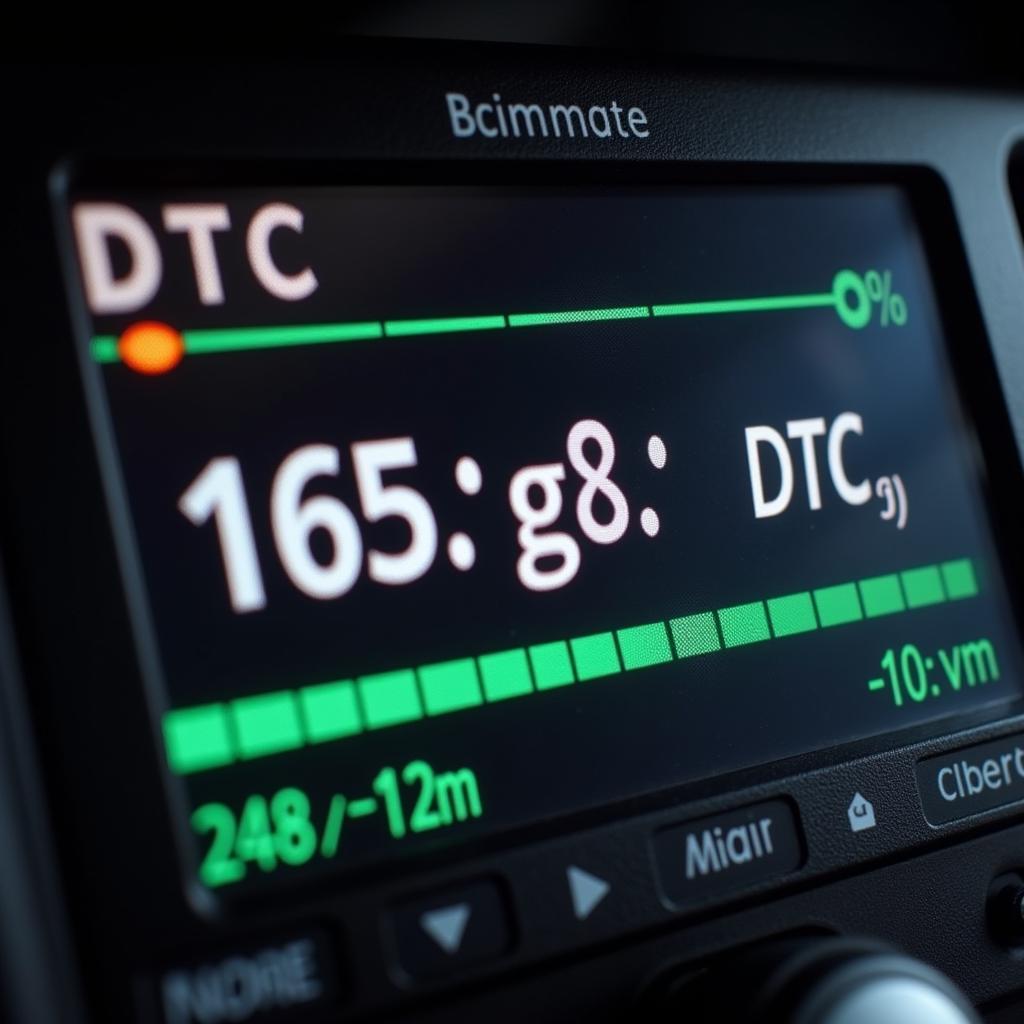A Full Diagnostic On Car is essential for maintaining its health, performance, and safety. This comprehensive check goes beyond a simple visual inspection, delving into the vehicle’s computer systems to identify hidden issues before they become major problems. Learn everything you need to know about this crucial process, from understanding its benefits to choosing the right diagnostic tools and services.
Why a Full Diagnostic on Car is Important
Regular car maintenance is crucial, but a visual inspection can only reveal so much. A full diagnostic test, however, dives deep into your car’s electronic systems, using specialized scanners to communicate with the vehicle’s computer. This allows mechanics to pinpoint issues that might otherwise go unnoticed, saving you time, money, and potential headaches down the road. A full diagnostic can reveal problems with the engine, transmission, brakes, exhaust system, and various other components.
A full diagnostic on car is particularly beneficial when:
- You’re experiencing unusual performance issues like decreased fuel efficiency, strange noises, or warning lights on your dashboard.
- You’re considering buying a used car. A pre-purchase inspection that includes a full diagnostic can give you peace of mind and help you negotiate a fair price.
- You’re preparing for a long road trip. Ensuring your car is in top condition before a long journey can prevent breakdowns and ensure a safe and enjoyable trip.
full car diagnostic test near me
Understanding the different types of diagnostic tests available is essential for making informed decisions about your car’s maintenance.
Types of Car Diagnostic Tests
Several types of car diagnostic tests exist, each serving a specific purpose:
- OBD-II Scan: This is the most common type of diagnostic test, accessing data from the vehicle’s onboard computer. It can identify issues related to emissions, engine performance, and other systems.
- Manufacturer-Specific Scan: This more advanced scan uses specialized software and tools to access deeper diagnostic information specific to your car’s make and model. It provides a more comprehensive analysis than a standard OBD-II scan.
- Full System Scan: This comprehensive scan covers all the electronic systems in your vehicle, including the engine, transmission, ABS, airbags, and more.
What Does a Full Diagnostic on Car Check?
A full car diagnostic test examines various systems, including:
- Engine: Checking for misfires, fuel injection problems, and other performance issues.
- Transmission: Identifying problems with shifting, slippage, and fluid levels.
- Brakes: Analyzing ABS functionality and brake system performance.
- Exhaust System: Detecting issues with the catalytic converter, oxygen sensors, and emissions.
- Airbag System: Ensuring the airbag system is functioning correctly.
- Other Systems: Checking various other electronic systems like the power steering, lighting, and climate control.
Understanding Diagnostic Trouble Codes (DTCs)
Diagnostic Trouble Codes (DTCs) are alphanumeric codes that pinpoint specific issues within your car’s systems. A full diagnostic scan will retrieve these codes, which a mechanic can then use to diagnose and repair the problem. Understanding these codes can empower you to make informed decisions about your car’s maintenance.
 Diagnostic Trouble Codes (DTCs) Explained
Diagnostic Trouble Codes (DTCs) Explained
“A full car diagnostic is like giving your car a thorough health checkup. It’s the best way to identify potential issues before they escalate into costly repairs,” says John Smith, Senior Automotive Technician at DiagFixPro.
Choosing the Right Diagnostic Service
Choosing the right diagnostic service provider is critical. Look for a reputable mechanic with experience and the necessary tools to perform a full system scan.
DIY vs. Professional Diagnostic Services
While DIY diagnostic tools are available, they may not provide the same level of detail as professional equipment. Moreover, interpreting the results requires expertise. For a comprehensive and accurate diagnosis, it’s best to consult a qualified mechanic.
“While DIY scanners can be helpful for simple checks, a professional diagnosis offers a deeper understanding of your car’s health. It’s an investment that can save you money in the long run,” adds Maria Garcia, Lead Diagnostic Specialist at DiagFixPro.
Full Diagnostic on Car: Conclusion
A full diagnostic on car is an indispensable part of responsible car ownership. It provides a comprehensive overview of your vehicle’s health, enabling you to address potential problems proactively. By understanding the benefits and choosing the right diagnostic service, you can keep your car running smoothly, safely, and efficiently for years to come.
FAQ
- How often should I get a full diagnostic on car? Generally, it’s recommended to get a full diagnostic annually or whenever you experience unusual car performance.
- What is the cost of a full diagnostic test? The cost varies depending on the service provider and the complexity of the scan.
- Can I perform a full diagnostic myself? While DIY scanners are available, professional services are recommended for comprehensive results.
- What are the benefits of a full diagnostic? Early problem detection, preventing costly repairs, and ensuring optimal car performance.
- What is an OBD-II port? The standardized port used to connect diagnostic scanners to your car’s computer.
- What are some common DTCs? P0420 (catalytic converter issue), P0300 (random misfire), P0171 (lean air/fuel mixture).
- What should I do after receiving a diagnostic report? Discuss the findings with a qualified mechanic to determine the necessary repairs.
Common Scenarios for a Full Diagnostic
- Check Engine Light: This is often the most obvious sign that your car needs a diagnostic check.
- Reduced Fuel Efficiency: A sudden drop in fuel economy can indicate underlying problems.
- Unusual Noises: Strange sounds coming from the engine or other parts warrant a diagnostic.
- Rough Idling or Stalling: These symptoms can signal issues with the fuel system or ignition.
- Transmission Problems: Slipping gears or difficulty shifting are signs of potential transmission issues.
Further Resources
Explore more articles on DiagFixPro:
Need help with car diagnostics? Contact us via WhatsApp: +1(641)206-8880, Email: [email protected]. Our customer support team is available 24/7.

Leave a Reply